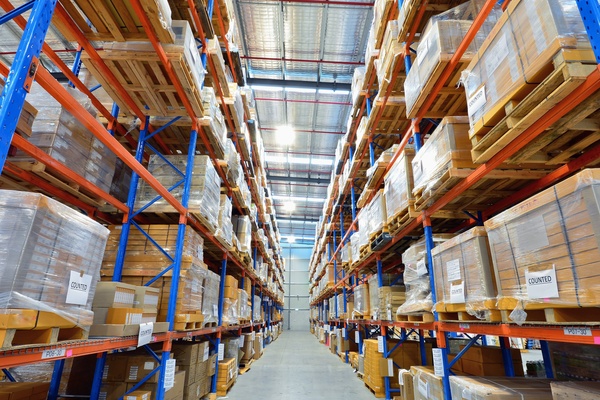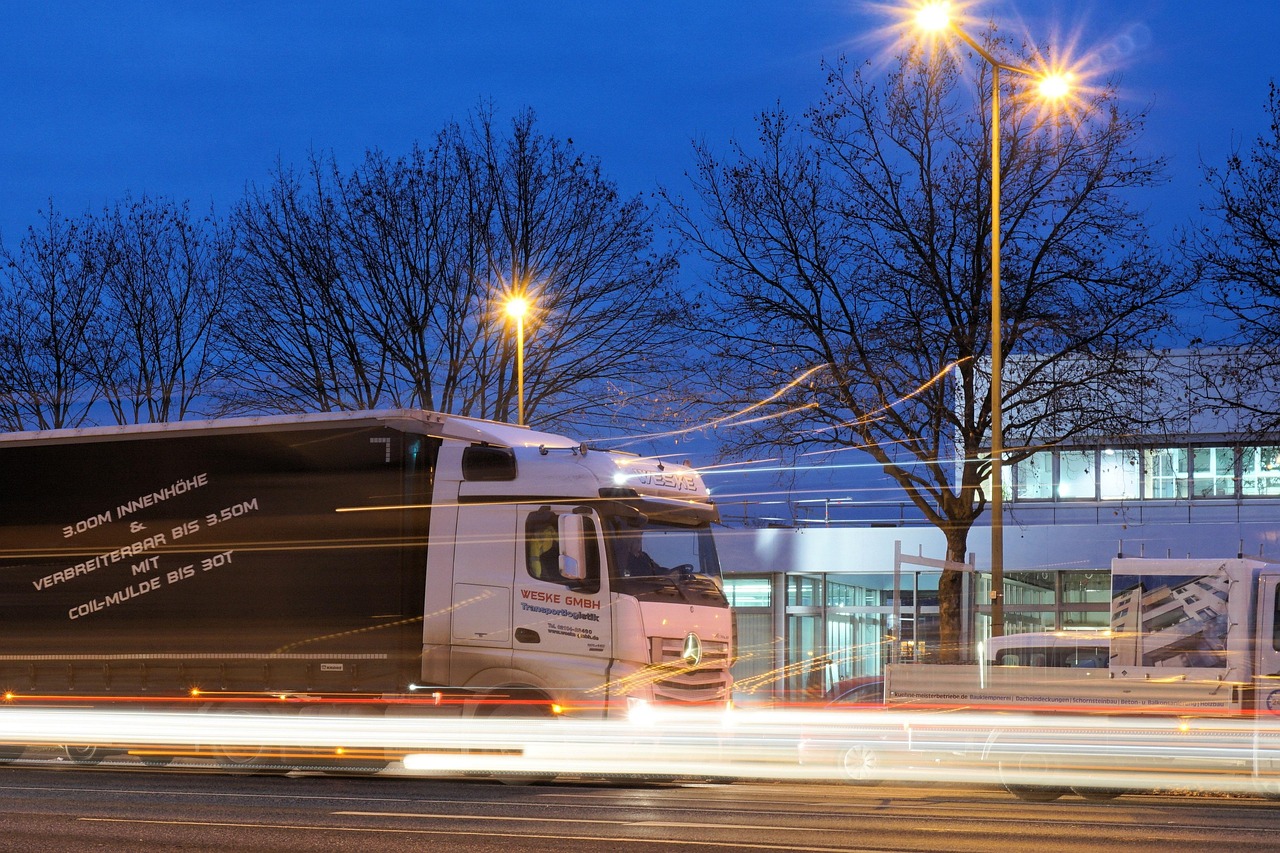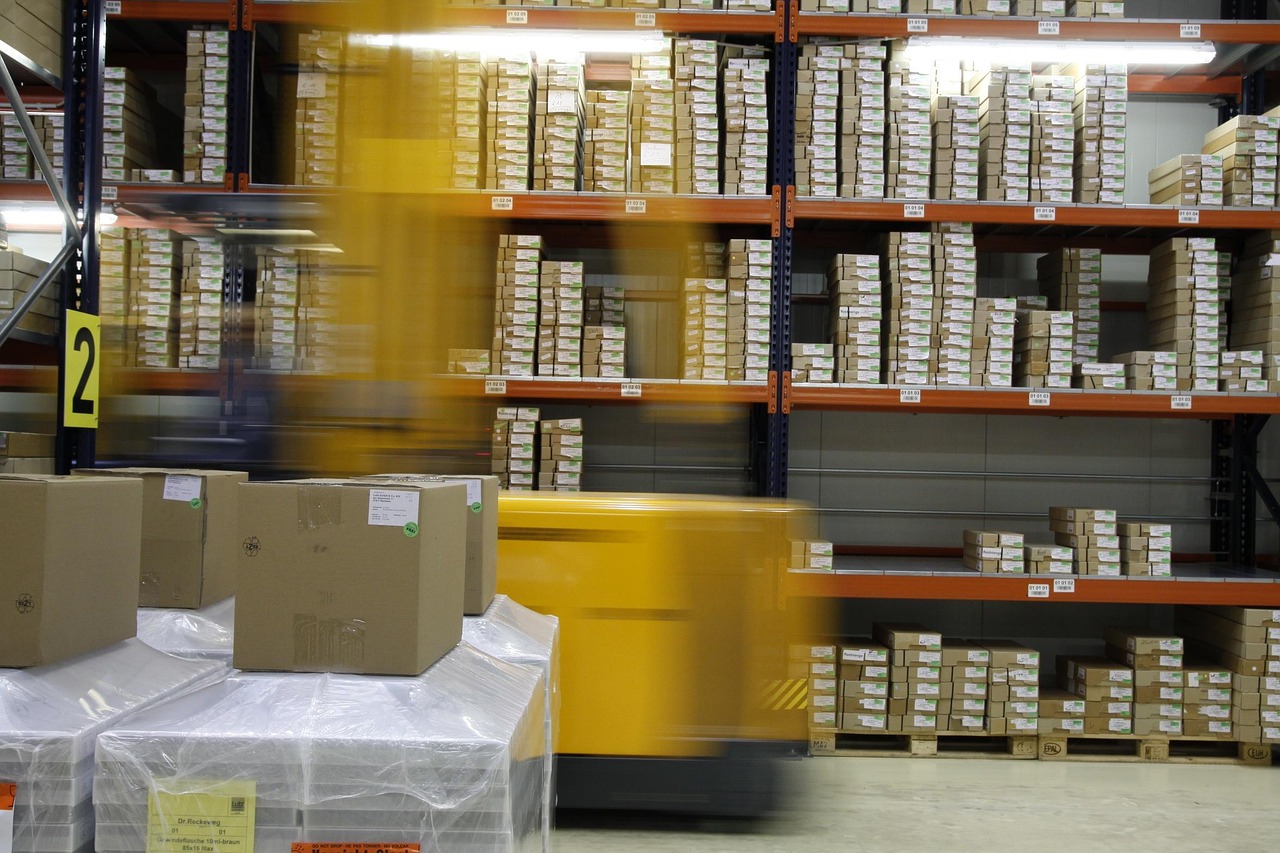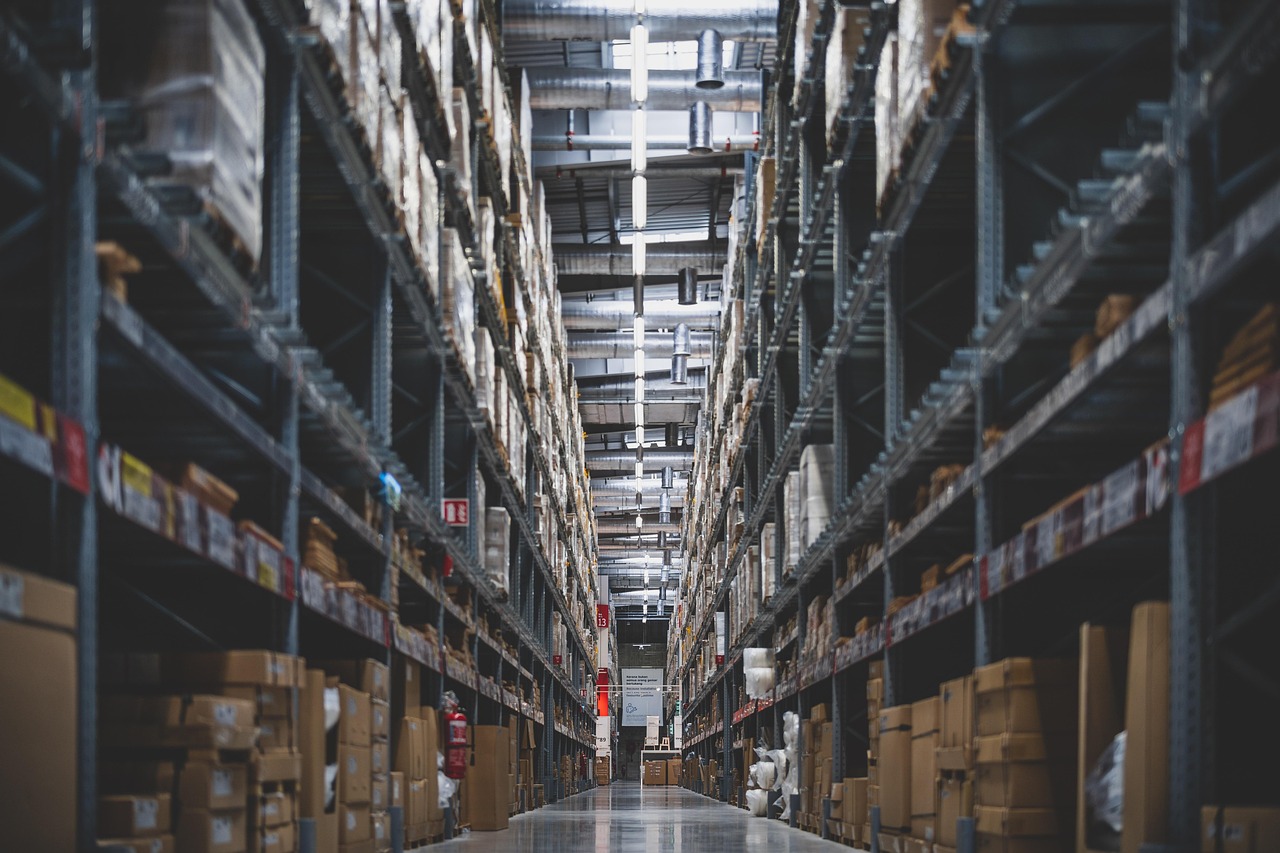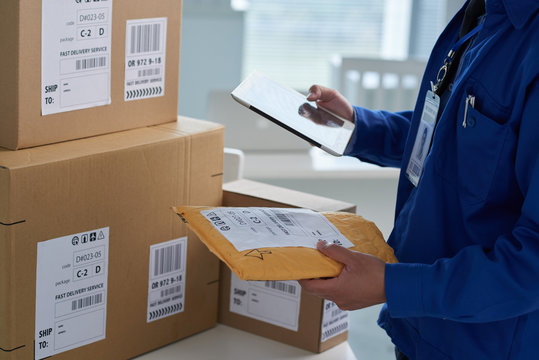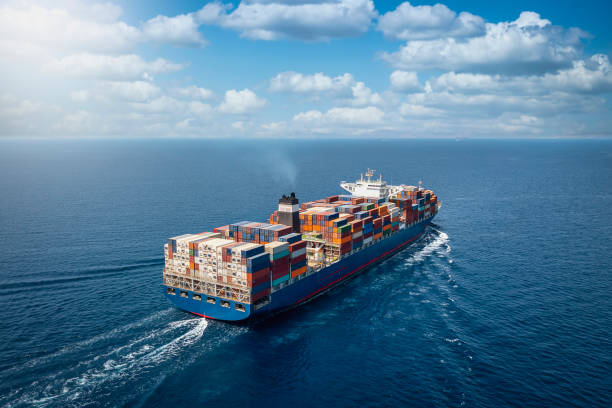If you already operate as a registered merchant in France and are looking to bring your products to the Mexican market, you've likely encountered a key challenge: logistics in Latin America is nothing like in Europe.
Delivery times, inventory control, and returns management can become a headache if you don't make strategic decisions from the start.
Outsourcing fulfillment is not only a smart option, but it can make the difference between a profitable store and one that loses money on every order.
Reducing shipping costs, speeding up deliveries in dense areas, keeping your operation running even on weekends... all of that is possible, but only if you know how to integrate with an infrastructure designed for ecommerce in the region.
You need a logistics system built for high-volume operations, that allows you to scale without losing control.
And if you're already a registered importer, the next step is clear: take advantage of that base to sell more and deliver better.
In this article, we show you the key points to optimize your logistics operation from France to Mexico, using smart fulfillment, technology, and common sense.
What is a Registered Merchant in France?
A registered merchant in France is a natural or legal person who has been officially registered with the French authorities to carry out commercial activities.
This means having a registration number in the commercial registry (RCS – Registre du Commerce et des Sociétés), fulfilling tax obligations, and complying with legal and accounting requirements.
It's a common figure for those selling products online from France and who wish to operate legally and in a structured manner, both within the country and internationally.
Being a registered merchant is the first step if you're thinking of expanding your ecommerce to markets like Mexico, where legal and logistical compliance can be a challenge if not properly planned.
Legal Requirements to Operate as a Merchant in French Territory
To become a registered merchant in France, you need:
- Commercial address in French territory
- Registration in the RCS
- SIRET number (company ID)
- Enrollment in the corresponding tax regime
- Keep accounting in accordance with French regulations
These requirements not only allow you to operate within France, but they also give you the possibility to carry out international operations, such as exports to Latin America.
Can You Export to Mexico as a Registered Merchant in France?
Yes, absolutely. If you're registered as a merchant in France, you can export products to Mexico without needing to have a locally incorporated company.
What matters is having a support infrastructure in the destination country that helps you comply with Mexican regulations and streamline delivery times.
This is the point where many entrepreneurs stop: they don't want to invest in warehouses, staff, or logistics processes in another country.
Fortunately, there are alternatives like specialized local fulfillment, which lets you ship your products from France and manage them directly from within Mexico, no physical presence required.
Key Differences Between Selling Within the EU and to Latin America
Selling within the European Union is usually easier thanks to the single market. There are no customs barriers, taxes are harmonized, and delivery times are more predictable.
When selling to Latin America, however, you must consider:
- Customs and tariffs
- Longer transit times
- Import requirements
- Variable costs for international shipping
- Need to adapt to local regulations
These differences may seem overwhelming, but with a good fulfillment strategy, you can turn them into a competitive advantage.
How to register as a merchant in France
To operate legally, a business must be registered as a merchant in France, either as a natural person (sole trader) or as a legal entity (company). The main steps include:
- Registration with the RCS (Registre du Commerce et des Sociétés / Trade and Companies Register).
- Obtaining a SIRET number, the unique business identification code in France.
- Declaring your activity to the French Tax Administration and registering under the appropriate tax regime.
- For companies, filing articles of association and fulfilling accounting obligations.
- Maintaining proper bookkeeping and compliance with French commercial law.
This registration ensures that your business is legally recognized, transparent, and tax-compliant, which is essential if you plan to expand internationally.
Advantages of being a registered merchant in France
Having the status of registered merchant in France not only enables you to operate locally, but also offers key benefits for expansion:
- Credibility and trust with suppliers, partners, and clients at both national and international levels.
- Ability to issue legal invoices and deduct business expenses for tax purposes.
- Recognition within the European Union single market, which simplifies intra-EU trade.
- A strong legal and financial foundation to expand into global markets such as Mexico.
This makes French merchant registration a strategic gateway for businesses aiming to scale into Latin America.
From registered merchant in France to selling in Mexico
Being registered as a merchant in France allows you to trade legally within the EU, but this is not enough to sell in Mexico. To legally import and sell in the Mexican market, businesses must:
- Work with an Importer of Record (IOR) or set up importer registration locally.
- Ensure compliance with Mexican tax obligations, including invoicing through CFDIs (Comprobantes Fiscales Digitales por Internet).
- Adapt logistics, delivery times, and returns management to local consumer expectations.
This is why collaborating with a specialized fulfillment provider in Mexico is the most efficient path, as it allows you to operate like a local brand without the need to open a legal entity or infrastructure in the country.
What Do You Need to Sell in Mexico from France?
First, you need to be clear about your tax and customs status in France. Then, it's essential to define whether you’ll operate as a direct exporter or work with an Importer of Record (IOR) in Mexico, who can help you bring in the products legally and without issues.
You should also have a logistics platform in Mexico that receives, stores, and distributes your products under high efficiency standards.
This will allow you to reduce delivery times and improve the shopping experience for your Mexican customers.
Required Documentation to Export from France
These are some of the key documents you'll need:
- Commercial invoice
- Packing list
- Certificate of origin, if applicable
- Export declaration
- Documents related to tax or customs payments
Having the right support will help you avoid documentation errors, customs delays, and unnecessary costs.
Mexican Regulations You Must Comply with Without Having a Local Presence
- Even if you don’t have a company in Mexico, you must still comply with certain local regulations to operate smoothly:
- Applicable Mexican Official Standards (NOMs) for your type of product
- Labeling requirements in Spanish
- Compliance with consumer protection laws
- Responsibility for returns, delivery times, and warranties
These regulations are demanding, but totally manageable with a logistics partner that understands the Mexican market and provides operational support.
Logistic Barriers and How to Overcome Them from Europe
Distance, time zone differences, and cultural gaps may seem like obstacles, but in reality, selling in Mexico from France is more feasible than ever.
The important thing is not to try to do everything on your own. A European ecommerce looking to operate in Latin America needs:
- Full inventory visibility
- Real-time order tracking
- Same-day or next-day delivery capability in strategic areas
- Efficient return and exchange management
If you're looking to reduce delivery times, improve logistics without investing in warehouses, and deliver an Amazon-level buying experience, we can help.
Each business is different. Talk to a specialist before making a decision.
Why Is Mexico an Interesting Market for French Merchants?
If you’re a registered merchant in France and you're considering expanding your operations, Mexico is one of the best gateways into Latin America.
Its strategic location, growing demand, and expanding digital environment make it a highly attractive market for international ecommerce.
Size of the Mexican Digital Market and Growth of Ecommerce
Mexico is the second largest ecommerce market in Latin America, only behind Brazil.
In recent years, e-commerce has grown at double-digit rates, driven by a young and digital-savvy middle class that demands a better shopping experience.
Growth is not limited to big cities. Today, the challenge lies in delivering faster and with more precision, even in areas where it used to be difficult. This is where a specialized fulfillment model makes a difference.
Growing Demand for European Products in LATAM
Latin American consumers increasingly value imported products, especially those from Europe. The perception of quality and style continues to be a strong differentiator for French brands, particularly in categories like:
- Fashion and footwear
- Personal care and beauty
- Home décor
This creates a real opportunity to expand sales, but also requires being prepared to meet local demand with agility and professionalism.
Positioning of French Brands in Key Categories
French brands enjoy high prestige in Latin America, particularly in segments where design, presentation, and the story behind the product influence the purchasing decision.
But having an attractive product is not enough. What Mexican customers expect is speed, real-time tracking, and immediate solutions when something goes wrong. And that is only possible with a high-level fulfillment system.
What Is an IOR (Importer of Record) and How Does It Help You Operate Legally?
An IOR (Importer of Record) is a key figure that allows you to export your products from France to Mexico without needing a local legal entity.
The IOR is responsible before the Mexican customs for product entry, tax payments, and compliance with regulations applicable to your merchandise. In other words, without an IOR, your products won’t legally cross the border.
Role of the IOR in Import and Customs Compliance
The IOR is in charge of:
- Legally registering products in Mexico
- Managing tariff and VAT payments
- Ensuring documentation is accurate
- Complying with applicable NOMs
- Avoiding customs delays and seizures
This figure not only streamlines the entry process, but also protects your business from logistics or customs errors that could cost you a lot of money and reputation.
Is It Mandatory to Have an IOR to Export from France?
Yes, if you don't have a legal entity in Mexico, you need an IOR. It's not optional. It's a requirement to comply with Mexican law and operate safely.
Some merchants try to skip this step and end up with products held at customs, unexpected fines, or forced returns. That's why the best choice is to delegate this role to an experienced local operator.
Advantages of Delegating the IOR Role to a Local Operator
When you work with a logistics operator that also acts as your IOR, you get:
- A fast and legal process from the first shipment
- Greater visibility over your deliveries
- Fewer customs processing errors
- Expert support at every step
- Ability to operate without forming a company in Mexico
This not only saves you time and money. It also lets you focus on selling, while someone else takes care of the heavy logistics work.
If you're thinking of expanding but are unsure how to begin, talk to an ecommerce fulfillment specialist. Mexico could be your next big market, but the right path starts with a well-thought-out logistics strategy.
How to Sell in Mexico from France Without Building Your Own Infrastructure
Expanding your ecommerce from France to Mexico may seem like a massive logistical challenge, but you don’t need to open an office, hire local staff, or invest in warehouses.
Today, you can sell in Mexico efficiently and professionally without building any infrastructure, by outsourcing the entire fulfillment process to a team specialized in ecommerce.
Below, we explain how this model works, step by step.
International Shipping from Your Warehouse or European Supplier
The first step is to ship your inventory from France or any other EU country to a logistics center strategically located in Mexico.
You decide the volume, frequency, and products. The key is to have a system that gives you full control of inventory in transit, regardless of distance.
Receiving and Storage in Mexican Logistics Centers
Once your products arrive in Mexico, they are received, inspected, and stored in a local fulfillment center. This space acts as your operating base in the country, without requiring you to open a company or rent a warehouse.
The advantage is clear: your products are close to the end customer, ready to be shipped without delays or repetitive procedures.
Order Preparation Adapted to the Local Consumer
Each order is prepared according to your instructions: custom packaging, kits, promotions, or special needs.
The key here is that the process is designed to adapt to Mexican consumer behavior, which values speed, presentation, and easy returns.
All of this is done with technology integrated into your ecommerce or marketplace, so you don’t need to manage anything manually.
Deliveries in Under 24 Hours with Full Visibility
One of the biggest advantages of operating with a local logistics center is speed. If your products are already in Mexico, you can offer:
Same-day deliveries in Mexico City
Next-day deliveries throughout the rest of the country
In addition, both you and your customers have full order tracking in real-time, from the warehouse to the customer’s door.
This reduces complaints, improves the customer experience, and strengthens your brand.
Returns and After-Sales Service Managed from Mexico
Does the customer want to exchange a product? Was there an order error? You don't have to handle this from France.
With a well-structured system, returns are received, validated, and processed directly in Mexico, saving you costs, time, and hassle.
Moreover, having local after-sales support reinforces consumer trust and positions you as a brand that delivers.
What Types of French Merchants Can Benefit?
This no-local-infrastructure operation model is ideal for several types of businesses looking to expand into Latin America.
DTC Brands with Their Own Online Store
If you sell directly to consumers from your website, you need logistics that are as fast and agile as your sales channel.
Having products in Mexico allows you to compete on delivery times and maintain control over the entire buying experience.
Companies Selling on Marketplaces Like Amazon or Cdiscount
If you're already selling on European marketplaces, you can replicate that model in Latin America, as long as you have a reliable logistics operation that meets the standards of the platform.
A local fulfillment center helps you integrate seamlessly and offer a top-tier experience.
Exporters Operating in the EU Who Want to Expand to LATAM
If you're already selling within the European space and are looking for new markets, Mexico is an excellent option.
You don’t need to set up a branch, just work with a logistics partner that knows the local market.
How to Choose the Ideal Logistics Partner in Mexico
Having a good product is not enough. The real difference lies in how you deliver it, how you manage returns, and how you handle the process. That’s why choosing the right partner is a key decision.
What to Look for in a Logistics Partner: Experience, Technology, Service
Look for an operator who understands ecommerce, works with in-house technology, and has real experience in the Mexican market.
Attention to detail, adaptability, and human support are also essential.
A fulfillment center that operates 365 days a year, with automated rules and special packaging options, will give you the strength and stability you need.
Importance of Traceability and Support in Your Language
Real-time traceability is no longer a luxury, it’s an expectation of modern consumers. Make sure your logistics partner offers full visibility through an integrated platform.
And if you're operating from France, having support in your language or personalized service that understands your way of working will save you many headaches.
How to Scale Seamlessly from the First Shipment
Starting small doesn’t mean thinking small. With the right model, you can begin with moderate volumes and scale progressively without slowing your growth.
A good fulfillment center will support you from your first shipment to your regional operation, without needing to restructure everything at each stage.
If you want to know how to optimize your logistics operation, we can help.
Every business is different. Talk to a specialist before making a decision.
How Can Cubbo Help You If You're Already Selling from France?
If you’re already a registered merchant in France and are ready to expand your sales to Mexico, Cubbo can become your strategic logistics ally in Latin America.
We know that managing international orders can become complex, costly, and slow.
That’s why we designed a fast, efficient, and ecommerce-focused fulfillment model, allowing you to sell in Mexico without building local infrastructure.
We Receive Your Inventory and Manage It from Mexico
From the moment your inventory arrives in Mexico, we take care of everything: receiving, inspection, sorting, and storage.
Everything is recorded in real time, using proprietary technology, so you have total visibility from your control panel, wherever you are.
You focus on selling. We ensure that each order is shipped quickly, well-packaged, and with an impeccable experience for the final customer.
Order Preparation and Ultra-Fast Deliveries
As soon as we receive an order from your online store or marketplace, we prepare it immediately, following your business rules.
Whether you sell fragile items, kits, or personalized products, we adapt the process so that your brand stands out, even through the packaging.
Thanks to our strategically located infrastructure, we can offer:
Same-day deliveries in Mexico City
1.3-day average delivery times in the rest of the country
This allows you to compete at the level of the big players, even if you’re operating from another continent.
Local Management of Returns and After-Sales Service
We know how complicated it can be to handle international returns. That’s why, at Cubbo, we manage returns directly from Mexico, with same-day inventory re-entry when applicable.
This improves the customer experience and saves you time, costs, and worries.
Additionally, having local logistics support means you can solve any issue without relying on your team in France.
We Integrate with Your Sales Channels
Our technology connects via API with platforms like:
- Shopify
- WooCommerce
- Amazon
- TikTok Shop
- VTEX, among others
This allows for automated order reception, inventory updates, and shipment tracking in one place.
Your operation becomes simpler, faster, and free from human errors.
From the very first order, you have total control of the logistics flow.
Expert Support in Customs and Regulatory Compliance
If you’re already exporting from France, you know that complying with Mexican regulations can be a real challenge.
At Cubbo, we also operate as your IOR (Importer of Record) and Merchant of Record, meaning we handle:
- Paperwork
- Tax payments
- Customs clearance
- Legal compliance
You don’t need to open a company in Mexico or deal with complex customs procedures.
We take care of it for you, with guaranteed compliance and no wasted time.
Scale with Confidence, No Infrastructure Investment
With Cubbo, you can start with consistent volumes and scale as your sales grow, without needing to hire staff, rent warehouses, or change your internal structure.
We adapt to the real pace and needs of your ecommerce.
Our team works 365 days a year, including weekends and holidays.
This allows you to offer uninterrupted service, even on key dates like El Buen Fin, Hot Sale, or Christmas.
If you want to know how to optimize your logistics operation, we can help.
Every business is different. Talk to a specialist before making a decision.
Frequently Asked Questions (FAQs)
Can Cubbo Act as IOR for Registered Merchants in France?
Yes. Cubbo can act as your Importer of Record (IOR) in Mexico, meaning we handle the entire legal and customs process to ensure your products enter the country without issues.
This allows you to legally sell in Mexico without forming a local company, speeding up your expansion and reducing risks from the first shipment.
Can I Ship Products from France Directly to the Fulfillment Center?
Absolutely. You can ship your products from your warehouse in France or from your European supplier directly to Cubbo’s logistics center in Mexico.
We take care of:
- Receiving
- Inspecting
- Storing
- Preparing each order according to your specifications
The entire process is connected via our platform, giving you total visibility of your inventory and orders in real time.
What French Products Perform Best in Mexico?
Mexican consumers especially value European products for their quality, design, and presentation.
In particular, we’ve seen strong demand in categories such as:
- Fashion and accessories
- Personal care and cosmetics
- Home décor and household products
- Gourmet food and beverages (if compliant with local regulations)
If your brand is already gaining traction in Europe, Mexico can be an ideal market to keep growing.
What Volume Do I Need to Operate with Cubbo?
At Cubbo, we work with ecommerce brands that already have a steady order volume or a clear growth projection.
If you’re ready to scale and looking for a solid, agile, and professional operation in Mexico, we can help you.
We don’t work with low-volume stores, as our model is designed for brands aiming to optimize logistics and grow in Latin America.

